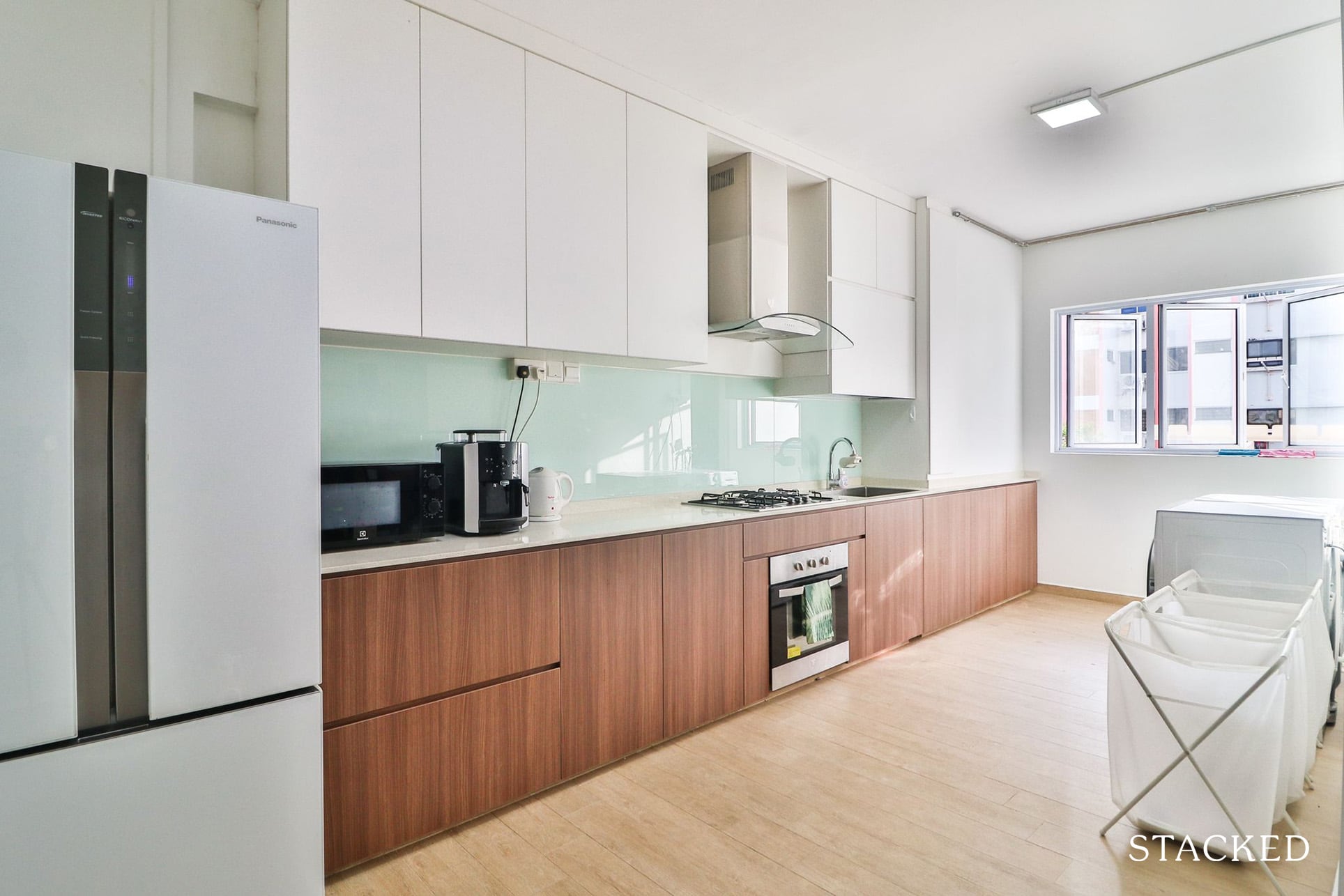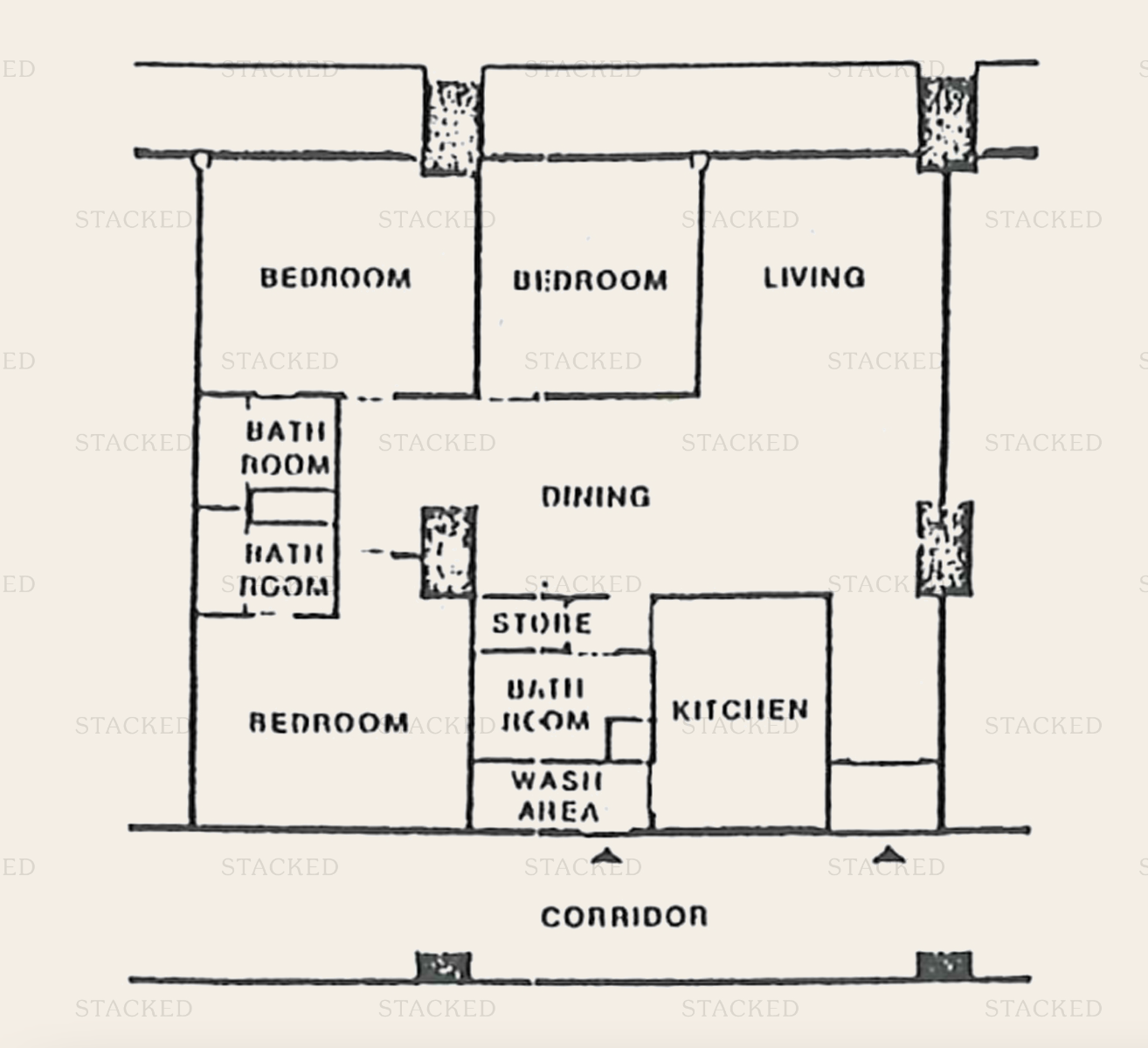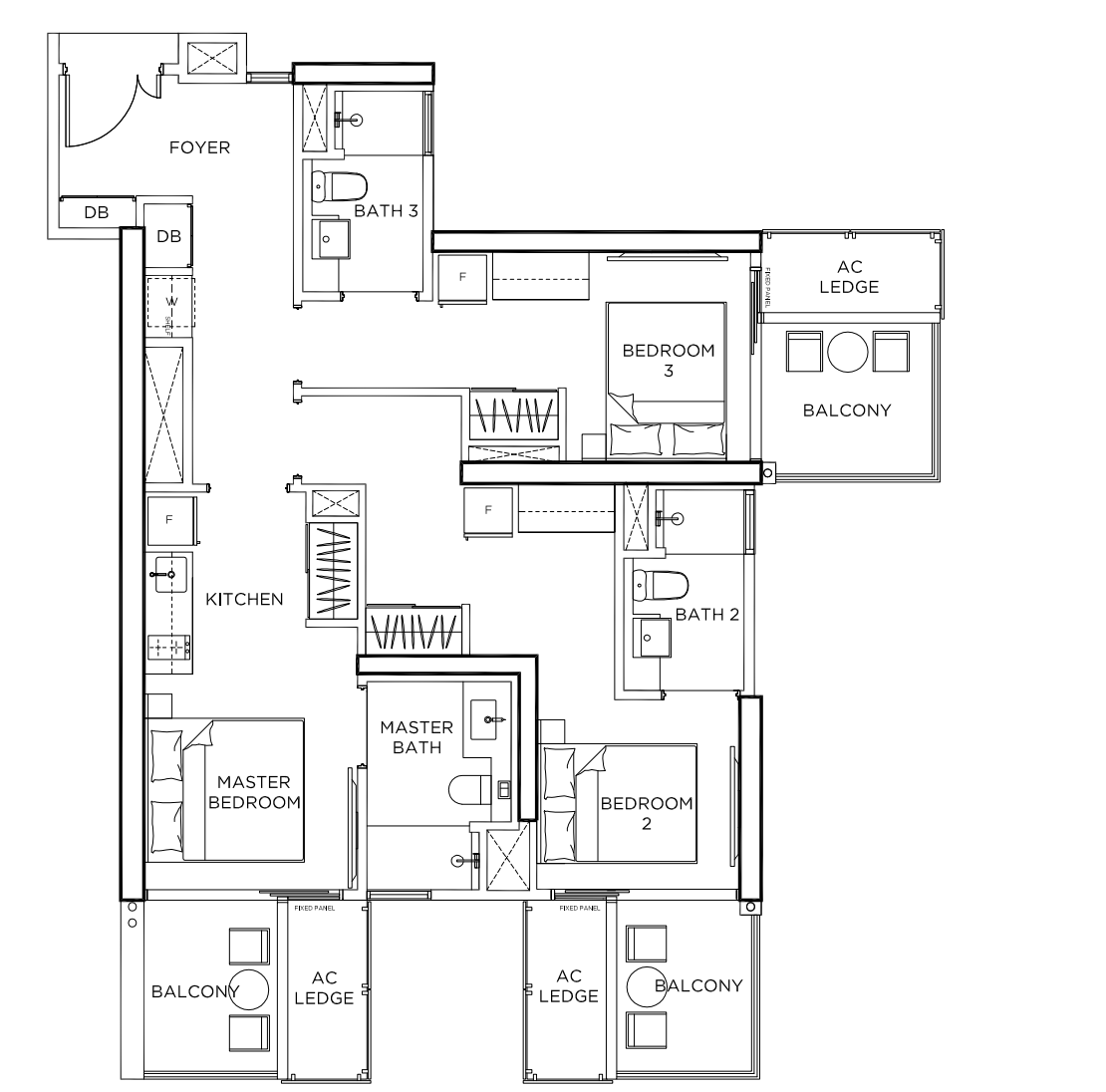6 reasons why some properties in Singapore are difficult to sell (even in a hot market)


If there's one thing property agents dread, it's telling sellers their home will be a tough sell. After all, if they're too blunt about it, the seller's response may be to dismiss their lack of confidence and find someone else.
On the other hand, some sellers would prefer the property agent to be candid and tell them if there are likely to be issues. With both in mind, let's look at the reasons some properties end up being a tough sale — including aspects that some agents may be too tactful to voice aloud:
A quick note: This isn't just for sellers
Even if you're not selling a property, we suggest you pay attention to the following issues. This will help you avoid picking a unit that might be hard to sell in future.
It's also important to consider who you bring along on your property journey (e.g. co-borrowers), as this can create complications later on.
A boutique development is often considered one with 50 units or fewer, although some agents may extend this to developments with fewer than 100 units.
These projects pose a problem because of their volatility. If no one has bought or sold a unit for over a year, it can be harder to support your asking price.
Conversely, if there has been just one transaction in the past 12 months, it can have a disproportionate impact. If the last unit sold very cheaply, for example, you may struggle to fetch a higher price.
On the flip side, mega-developments — often regarded as projects with 1,000 units or more — have a much larger volume of transactions. The problem is they also tend to have far more listings. At the time you want to sell, there may be dozens of other neighbours attempting to do the same. This forces an agent to spend significantly more to boost your listing.

One agent admitted he is far pickier with mega-developments and showed us his account on a property portal. For one listing at Normanton Park, he had spent a four-figure sum just to keep the listing at the top of the portal.
He explained that lower margins for agents, as well as longer sales times, can sometimes be an accepted norm due to the volume of competing listings. Even viewings and negotiations are tougher, as the other listings are all within the same project.
This can make it harder to differentiate between units — unless you're fortunate enough to own a unit with a rare or significantly better layout.
This is worth considering if you're drawn to the exclusivity of a boutique project or the lower costs associated with a mega-development.
Before delving into this, it's worth noting that this isn't universally true. There is a niche group of buyers who prefer tenanted units, although this is typically limited to specific areas in Singapore.
For instance, certain walk-up apartments in Geylang are often rented to foreign workers. Niche landlords, familiar with such areas and properties, may even prefer to purchase these units already tenanted.
For the vast majority of cases, however, tenanted units are harder to sell.

One reason is simple logistics: tenants must be informed when someone wants to view the property, and some may object. This can result in lengthy back-and-forth communications as the agent attempts to coordinate an ideal time.
This can significantly slow the sales process, particularly if there are multiple tenants with differing schedules. Plus, this may also mean you have to show the property at the least ideal time (peak periods when it is noisier, etc).
Another issue is messy tenants. They may not leave the property in its best condition. Potential buyers might encounter unwashed socks on the sofa, dirty dishes piled in the sink, or even a muddy bicycle in the living room.
While it's possible to sell a tenanted property, the process is often slower. Having a single tenant makes it easier than multiple tenants, but most property agents prefer vacant units.
This includes people in both official and unofficial capacities. One realtor described how the sale of a semi-detached house in Eunos was stopped by the seller's grandmother:
In this instance, the client's decision to include a large pool of people in the decision-making process — including the grandmother — was generous. But besides prolonging the sale, it eventually ended up being taken off the market altogether; and all the efforts in staging and marketing were wasted.
Another realtor recounted managing a transaction where three siblings co-owned the property. Every decision — from offers to staging and timelines — degenerated into shouting matches, with vulgarities and threats of lawsuits. While the property was eventually sold, the agent needed a month-long holiday to recover and now avoids such situations.
If you ever buy a home, carefully consider whom you take on as a co-owner. Accepting your parents' money to buy a larger condo now may mean accepting their decision never to sell it later.
Some properties are in a state of disrepair, and the seller is unwilling to carry out even basic repairs. When buyers request certain conditions — for example, fixing the plumbing as a prerequisite for purchase — these sellers may still outright refuse, even if it would ultimately be in their best interests.
One realtor recounted a situation where her client could have made over $400,000 on a transaction if they had agreed to spend around $15,000 on repairs, yet the client declined*.

For properties in poor condition, or sellers aiming for a higher price, agents often recommend staging. This might include allocating a budget for a video tour or applying a fresh coat of paint.
However, some sellers expect these improvements to be undertaken without incurring any costs themselves. This approach frequently leads to the listing stagnating as sellers switch agents repeatedly.
Where possible, it's worth adopting a forward-thinking approach to these costs. Investing in staging and renovations could lead to significantly higher offers, often outweighing the initial expense many times over.
*That said, we do acknowledge that some clients may be in dire financial straits. Simply owning or inheriting a property doesn't guarantee they have the resources to fund renovations, even if it would help secure a better selling price. A good property agent can find ways to help in these situations, but be frank and explain it to them.
This issue is more common in older properties, such as walk-ups or older landed homes. For many properties built in the 1970s or earlier, it's not unusual for there to be no floor plans on record. This makes selling the unit much more challenging for property agents, as a collection of photos on a portal is rarely enough to satisfy potential buyers.

Buyers often need detailed information, such as which walls can be moved, how many people can comfortably fit in the dining area, and whether rooms can be merged or separated.
Most will want to consult a contractor or interior designer to assess whether the unit can accommodate their preferred themes. Without this information, buyers are likely to lose interest and move on to other listings.
Another issue arises when the layout doesn't match the existing floor plan. This could indicate that a previous owner made modifications that were not documented.
Examples might include mezzanine floors, unplanned attic spaces, or other alterations. Bear in mind that this can lead to complications with the authorities, as attic spaces may add to your square footage, and mezzanine floors are not always compliant with regulations.
Buyers are quite alert to this, and they don't want to be left holding the bag when the authorities check. In the event the work really is unauthorised, you might not be able to sell before rectifying it.
It can be challenging to sell units with unconventional layouts, such as wedge-shaped spaces, curved walls, or units with very long hallways.
These features are often undesirable to buyers as they typically require more effort to adapt, such as custom carpentry; and some of these layouts are inefficient. While some buyers may appreciate these unique characteristics, expect your agent to take longer to find them.

Other unusual layouts include triple-key units (a single unit divided into three separate sub-units), very small one-bedroom spaces (under 450 sq ft), or extreme interior modifications — for example, merging three bedrooms into a single, oversized space or heavily partitioning the unit to accommodate more unrelated tenants.
These layouts appeal to a very niche group of buyers or those prepared to invest significantly in renovations. Consequently, agents often need to put in considerably more time and effort to locate an interested party.
If you view your home as your "forever home," don't hold back on tailoring it to your preferences. Merge all the rooms to create a Zen temple, or convert most of the kitchen into a painting studio - do what makes you happy. But if resale is part of your future plans, it's worth reconsidering these decisions.
[[nid:713637]]
This article was first published in Stackedhomes.